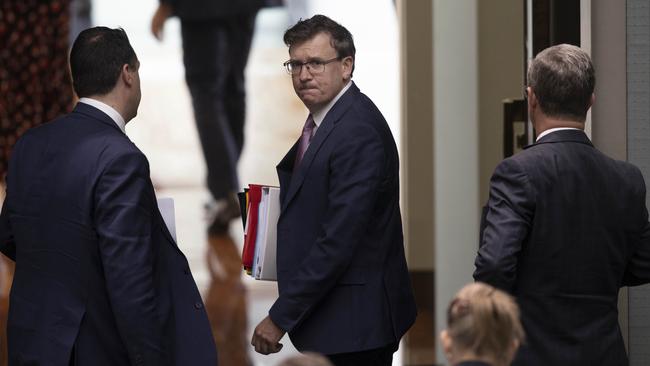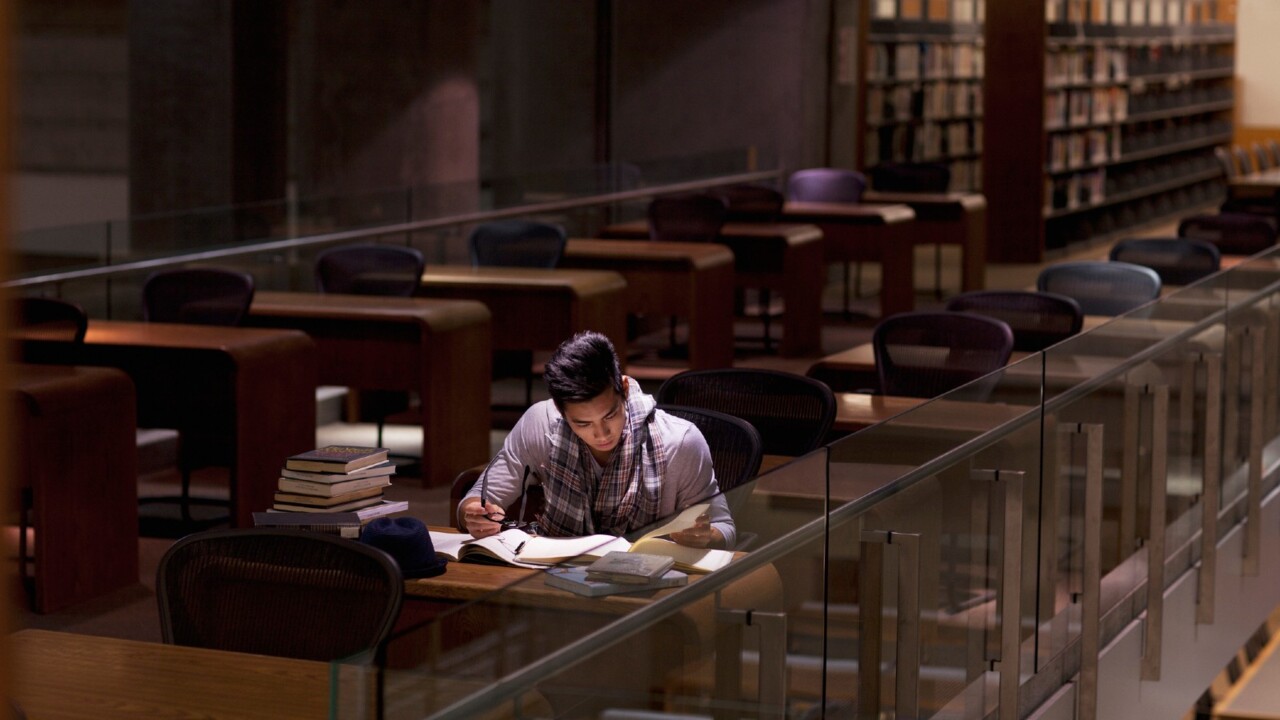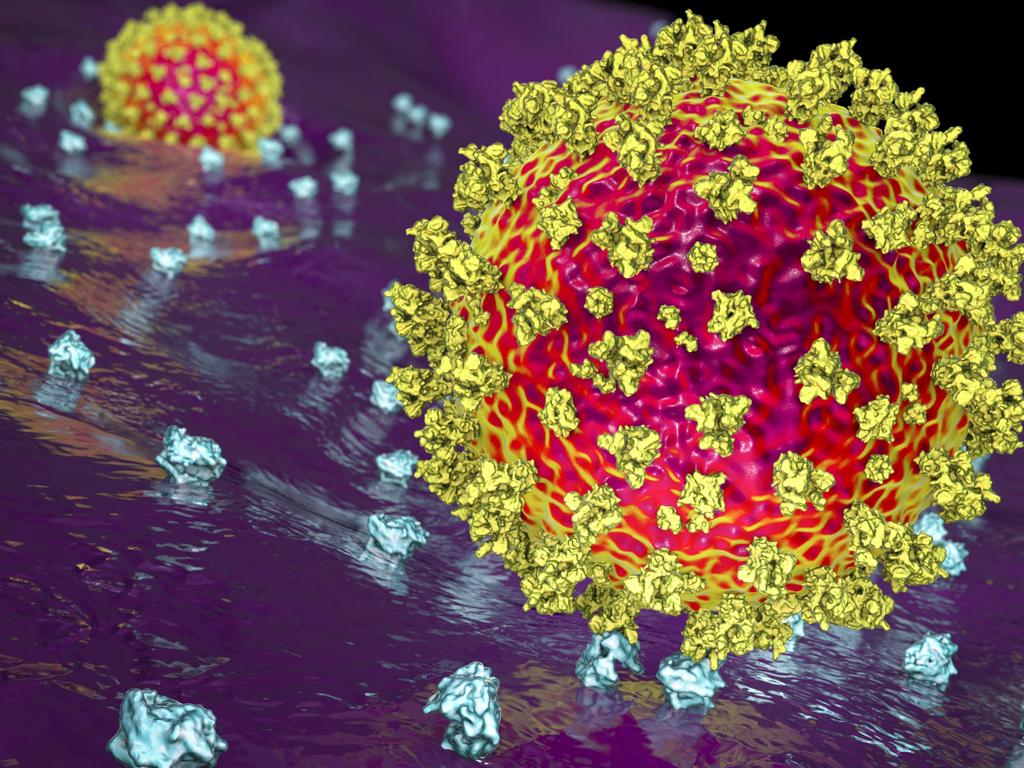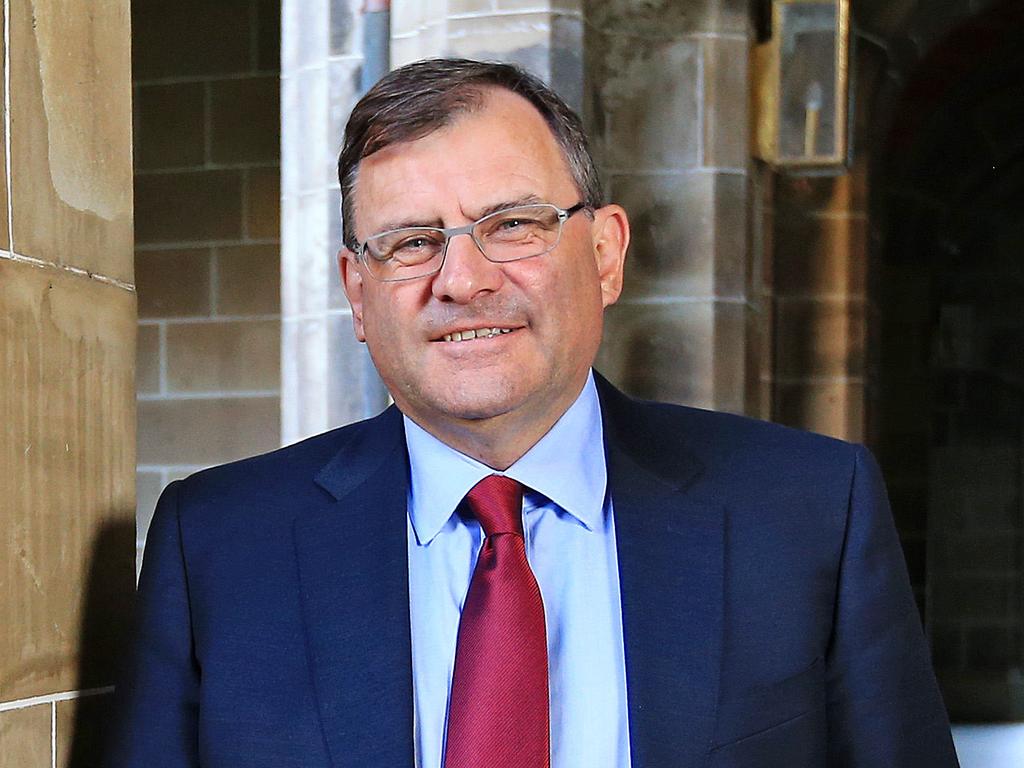Higher education: University grants may be tied to research that sells
Uni grants could be tied to commercialisation of research, as institutions are urged to reduce reliance on foreign students.

Future government grants to universities could be tied to boosting the commercialisation of research, as institutions are urged to change their business models away from an over-reliance on international student revenue to refocus on educating Australians.
And in a signal of changes to intellectual property laws, vice-chancellors, business leaders and academics will be told the nation’s key institutions need to engage in the creation of new industries, sovereign capabilities and the great public policy challenges facing the country or Australia risks falling behind the rest of the world.
Education Minister Alan Tudge — in a call to arms for the university sector to become a key player in the post-pandemic retooling of the economy — will on Friday tell academics at Melbourne University that the current model, where an average 25 per cent of revenue relied on international students, had not only been disrupted by COVID-19 but was not sustainable beyond the pandemic.
“Now is the time to make this change, not just because our economy needs it, but because university business models have been severely disrupted by COVID,” Mr Tudge will say in his first major speech on higher education since becoming minister in December.
“These disruptions have highlighted that university business models can and need to become more resilient, sustainable and optimised for our national interest. The focus on international rankings has led to a relentless drive for international students to fund the larger research volumes that are required to drive up the rankings.
“To be clear, we want and need international students in Australia. They have been great for our society, our economy, our diplomacy, and thousands have stayed and become outstanding citizens.
“But COVID presents us with an opportunity to reassess the impact our universities can have, and to refocus on the main purpose of public universities: to educate Australians and produce knowledge that contributes to our country and humanity.”
Australian universities have come out of the 2020 pandemic in a better financial shape than many analysts anticipated, partly due to the extra $1bn in research funding they received in October’s federal budget.
The University of Melbourne on Thursday became the second Group of Eight university — alongside Victoria’s Monash University — to announce a surplus, despite both being deprived of thousands of Chinese students. While the University of Melbourne announced an $8m operating surplus, Monash University announced a surprisingly large $259m operating surplus for 2020 two weeks ago.

The better-than-expected results come despite the higher education sector suffering a host of policy losses in Canberra over the past year. The Morrison government denied universities access to JobKeeper, cut overall funding for teaching in its shake-up of tertiary student fees, and announced a clampdown on universities’ deals with foreign powers such as China.
The sector’s lack of success in influencing government policy has also triggered a fresh power struggle between chancellors and vice-chancellors over the direction of higher education and driven criticism of peak body, Universities Australia, for failing to forge an effective relationship with the Morrison government.
In his speech, Mr Tudge will flag that while universities have increased their research output over the past 20 years they have still failed to increase their commercialisation and are lagging behind comparable countries.
“We do not have enough collaboration between business and higher education on innovation projects,” Mr Tudge will say. “Moreover, Australia’s average rate of 20 invention disclosures compares to more than 40 in Canada, more than 60 in Israel, and over 120 in the US.
“When you look at start-up companies founded per dollar of research expenditure, a similar story emerges. For every $1bn in research expenditure, Australia produced three start-ups while Canada, the US and the UK produced more than twice as many.
“Moreover, in a post-pandemic world, can we make further inroads into some of the big societal challenges such as the decline in school education standards, persistent indigenous disadvantage, and the transition to a low-carbon economy. These are big challenges for our country and with big challenges, the best minds are required. This is where our universities come in. Many of the greatest minds in our country reside in our large research institutions — 80,000 research staff in total.”
Mr Tudge will reaffirm the Morrison government’s goal of increasing ties between universities and corporations. The Prime Minister is concerned about the sector’s lagging monetisation of research compared with international higher education rivals.
“We want and need our universities to play a bigger role — to not just produce brilliant pure research, but to work more with businesses and governments to translate this research into breakthrough products, new businesses and ideas to grow our economy and strengthen our society,” Mr Tudge will say.
His speech also hints at future funding arrangements for universities that would favour those that engaged in research commercialisation.
“The direction I am setting today, which builds on the direction set by the PM over the past year, is not a minor or temporary part of our government’s approach,” he will say. “It is at the very core of our higher education policy: how we will engage with universities, and how we will fund universities.
“While the research commercialisation agenda is our initial focus, I concurrently want to continue our thinking on how universities can make a greater impact on our largest social challenges which don’t necessarily have a commercial outcome.
The Australian revealed this week that the government’s shake-up of course fees, aimed at directing students to critical employment areas to aid the post-pandemic recovery, had also seen an increase in applications for priority courses with new, lower fees including agriculture, health, science and education.








To join the conversation, please log in. Don't have an account? Register
Join the conversation, you are commenting as Logout